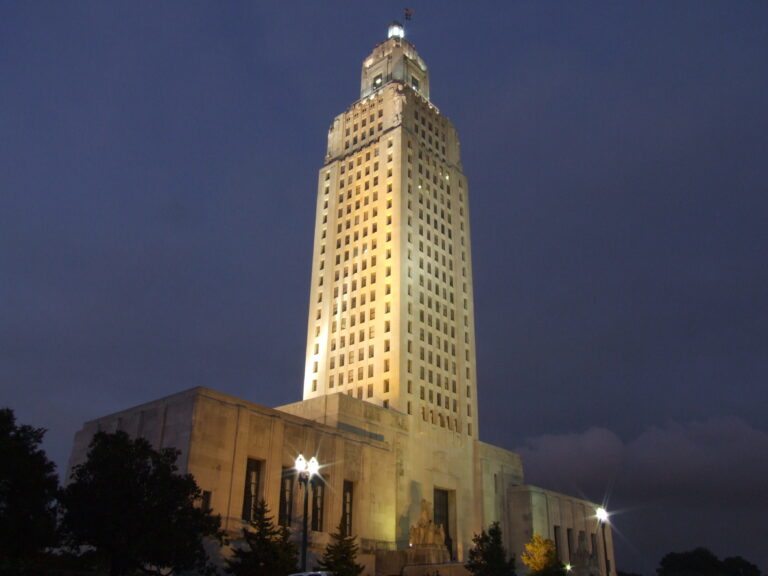(The Center Square) — The Louisiana Legislature has introduced a bill to limit the growth of the government, an increasingly popular move among states.
In November, the House of Representatives passed an identical bill, but once it arrived to the Senate it was amended significantly, which included various exceptions to the expenditure limit such as funds from the federal government or statutorily dedicated funds.
The one currently before the Legislature removes those exceptions and more.
“What the bill does is it limits the amount of recurring general fund… that can be appropriated for recurring expenses and restricts the use of the revenues above that limit,” Rep. Phillip Tarver, R-Calcasieu, explained. “We’ll create a government growth limit.”
Louisiana’s state spending has increased by over $22 billion since 2016, largely driven by health care and educational spending. Those two spending categories have increased in large part due to the state’s expansion of Medicaid. Enrollment in Medicaid has increased to 44% of the population and ballooning healthcare spending to 40% of the state budget, according to the Pelican Institute.
Spending on education has risen. Through the Minimum Foundation Program, spending on education has grown even as student enrollment declines, bringing the state’s spending on education to over $11 billion.
“Louisiana’s budget is highly constrained by a variety of constitutional and statutory requirements that earmark significant portions of state revenue for specific purposes. This limits lawmakers’ discretion in allocating funds to address current priorities or fiscal emergencies,” the Pelican Institute wrote. “Nearly one-quarter of the state’s tax revenues are automatically set aside for specific purposes before lawmakers even begin drafting the budget.”
The growth limit would be calculated using the previous year’s general fund appropriation as a base, multiplied by a growth factor that reflects population changes and inflation — specifically, the Consumer Price Index and medical care inflation. If revenues exceed the cap, they could only be used for non-recurring expenses, such as infrastructure or paying down debt.
“The growth limit cannot exceed the expenditure limit,” Tarver said. “And if the revenues exceed the growth limit, but are under the expenditure limit, the revenues can only be appropriated for non-recurring expenditures.”
The new rule wouldn’t apply to one-time or emergency spending, and certain expenditures would be excluded from the cap. But any recurring revenue collected above the new growth limit would be off-limits for ongoing expenses and could only be used for nonrecurring purposes like infrastructure projects or paying down debt.
The proposal also includes a mechanism for lawmakers to change the growth limit through a two-thirds vote.
The bill advanced out of committee without objection and without any major amendment.

